|
This article was first posted on enCourage. See original link here.
“My feet aren’t going to know what to do with someone handling them so gently. Usually the aides are in such a hurry, they just shove the shoes and socks on my feet.” As I slid knee-highs on Doris, an elderly woman who lived at the same retirement center I lived and worked at for free rent as a seminary student, I was overwhelmed that she’d allow me to look at her feet and get so close to them. They smelled awful and her toenails were a dark yellow from age, but she wasn’t embarrassed. As I cared for her, I couldn’t help but think of Jesus washing His disciples’ feet in John 13. “When he had washed their feet and put on his outer garments and resumed his place, he said to them, “Do you understand what I have done to you? You call me Teacher and Lord, and you are right, for so I am. If I then, your Lord and Teacher, have washed your feet, you also ought to wash one another’s feet. For I have given you an example, that you also should do just as I have done to you. Truly, truly, I say to you, a servant is not greater than his master, nor is a messenger greater than the one who sent him. If you know these things, blessed are you if you do them” (John 13:12-17). Washing feet was a job for servants, not the Savior. The disciples’ feet would have been dirty after walking in sandals all day. But Jesus wanted them to understand that if He washed their feet, then they certainly needed to wash one another’s feet. He gave them an example of what it means to live the cross-centered life, and then gave them the means to do so by accomplishing the redemption of God’s people on the cross. John 13 teaches us many things. It teaches us about God’s love. Jesus loves His own to the end (even Peter who denied Him), and Jesus loves His enemies (even Judas who betrayed Him). His love is tangibly expressed by humbly washing His disciples’ feet, which was a foreshadowing of what He was about to do on the cross—cleanse them of their sins. This passage also teaches us about our loves. Apart from God’s grace, we will love the things of this world, and deny our need for Christ’s cleansing. As Peter learned, if Jesus doesn’t wash us, we aren’t saved. But if we believe in Jesus, then we are united to Christ. We have been given new hearts that can recognize and rejoice that Jesus loves us and saves us. In response, we can lean into Him with affection, like John, whom Jesus loved. Yet, on this side of glory, we won’t live the cross-centered life perfectly. Even after we’re saved, we will underestimate the power of sin and our desperate need for Christ’s intercession—like Peter who denied Christ three times. Finally, John 13 teaches us how we are to love God and others. Because Jesus loves us, and because He gave Himself up for us, we should love our brothers and sisters in Christ by humbly helping them. Christ’s love, most fully displayed on the cross, deepens the meaning of what it means to love our family, friends, brothers and sisters in Christ, as well as our enemies. Our loving service must flow from His sacrifice. He is far more than our example; He is exalted far above every other name. We should help others recognize how prone we are to wander from Christ’s salvation, saying with Peter, “You’ll never wash me,” as well as from His lordship, betraying Him like Judas. We should pray for those we know who are in darkness, asking the Lord to save them. Outward rites don’t guarantee inward regeneration. There are many in our churches today who are not saved. As you reflect on Christ’s life, death and resurrection during this season, remember the four postures in John 13—the posture of Jesus, bent over in service, washing His disciples’ feet; the posture of Peter, at first resisting Jesus’s offer to wash Him and then embracing it; the posture of John, embracing Christ and leaning into Him with great affection; and the posture of Judas, rejecting Christ altogether. As believers, we are to serve others because Christ first served us, and we need to lean into Jesus, learning more about Him as we spend time with Him in prayer and the Word in the midst of His people. The cross-centered life is always thinking about what Christ has done, is doing and will do, and serving others from those truths. He has lived a life of perfect obedience on our behalf, and suffered God’s wrath in our place. He is interceding for us and reigning over us as King. And He is coming again to save those who are eagerly waiting for Him, as well as to judge those who refuse to bow their knee to Him. Indeed, He is coming again to make all things new. Whether we have the opportunity to tenderly slide shoes and socks on the elderly’s feet, take a meal to someone in need, serve our covenant children by teaching Sunday school, disciple a younger woman in our church, weep with a woman who has just lost a child, or rejoice with a young lady who just got engaged, our love for Christ is seen in how we love and serve each other, and it is this loving service that causes the world to know we are His.
0 Comments
This article was first posted on enCourage. See original link here.
The beginning of a new year often brings reflection and resolutions, and rightly so. Worthy, Christ-centered goals can be helpful as we reflect on last year and resolve to do things differently this year. As you make your list, I want to challenge you to include the fear of the Lord. To fear the Lord means to know the Holy God, and to respond to Him in love, trust, obedience, and joy. “The fear of the LORD is the beginning of wisdom, and the knowledge of the Holy One is insight” (Prov. 9:10). To live wisely in the midst of the whirlwinds thrown at us, or the mundane moments of life, we need to understand that we live in the presence of the holy God. This becomes most apparent as we read and study Scripture. The book of Proverbs is a good place to start. It is filled with counsel we need to live our daily lives, but it’s not a book of moral maxims we have to achieve on our own. In Christ we have everything we need to live a life of godliness (2 Pet. 1:3). To fear the Lord means we are so enamored with the holiness and love of God that we flee sin.Whether others persuade us to sin, or offer us material pleasures to tempt us to sin, or whether our lust for acceptance drives us to sin, temptation will come this year. We must run toward Christ, the One who “became to us wisdom from God” (1 Cor. 1:30). Those who fear the Lord are in union with Christ, and His people, the Church. When we identify with the people of God through baptism, sit underneath the preaching of the Word, partake of the Lord’s Supper and fellowship together on a regular basis, we will be encouraged to fear the Lord. Community is God’s idea, and it’s in community that we are best able to know the love of God and respond to Him in love, trust, obedience, and joy. The fear of the Lord is the beginning of wisdom. Wisdom calls to us, not in a whisper but in a whirlwind, not in calmness, but in commotion (Proverbs 1:20-33). She’s like a mother banging pots and pans in the kitchen, trying to get her children’s attention. She wants simple scoffers to turn from sin to her stretched out hand that will lead them to eternal life. I want to be more like Lady Wisdom, making a clamorous noise for Christ. Instead, I’m often too scared to speak boldly to those who scoff at the mention of Christ. And yet, in the midst of many scoffers, Christ shed His blood to accomplish the salvation of God’s people. We need to pray that the Lord will give us opportunities and boldness this year to share the hope of Christ with those who don’t know Him. Wisdom does not just call to us; we are also to call out for her (Proverbs 2:1-15). When we cry out for wisdom, the Lord gives it to us. As we abide in Christ, we will find over time that wisdom and knowledge replace foolishness and ignorance. Impulsiveness will give way to discretion, confusion to understanding, perverted speech to gracious words, ways of darkness to paths of uprightness, perverseness of evil to perseverance of the saints. Not perfectly of course, not on this side of glory, but we will grow in sanctification until Christ comes again and perfects us. If you’re reading this today and you fear man more than God, flee to sin instead of away from it, and forsake wisdom instead of follow her, I want to encourage you. It is not too late to turn to Christ in repentance and faith. The One who walked in paths of righteousness for God’s people and bore God’s wrath in His people’s place, is the only One who can save sinners from paths of unrighteousness. It doesn’t matter how far down the road of sin you’ve been, if you turn to Christ in repentant faith, His arms are open wide for you, and so are the arms of His people. Together we will learn to fear the Lord. And together we need to teach the next generation to do the same. The world, the devil and our own flesh never stop enticing us to fear man, love sin, and follow worldly wisdom. We must learn to savor our Savior more than we savor the sin by which we’re so easily ensnared, and we need God’s grace to do this. Thankfully we have it. Christ offers us His Spirit to uphold us and make us strong. So, as you finish writing your New Year’s resolutions, add one more--fear the Lord. Together, by God’s grace, we will walk wisely in 2019. Many of us will begin leading or teaching Bible studies this fall. It might be our first time or fiftieth time, but one thing is certain—we all need to step into our teaching or leadership role with prepared heads, hearts, and hands, so that our teaching, by God’s grace, will be fruitful and effective for the gospel. Here are ten suggestions to help you better prepare for your leadership or teaching role.
(1) Recognize God has given you this opportunity to proclaim Christ. Oftentimes women are either overly confident or under confident in their leading or teaching role. The overconfident woman oftentimes relies on her gifts and abilities to teach and the under confident woman is often focused on her lack of gifts and abilities to teach. In both cases, the remedy is to recognize the Lord has given you this opportunity and will equip you for the job. You can go into class confident that the Christ who called you is the same Christ who has given you the spiritual gifts for the task. And He alone is the Christ you must proclaim. (2) Repent of your own sins. Make sure that your heart is right before the Lord before you go in to lead a group of women. This doesn’t mean you will have a perfect heart. None of us do. But it does mean that we have a repentant heart that has sought reconciliation with God and with those we’ve sinned against. (3) Rejoice in the Lord. We need to have a private life filled with prayer and praise before we can lead our women to pray and praise. (4) Read and study the Word of God, as well as other applicable resources. This means we have to say “no” to things we might really want to do in order to say “yes” to preparing our lesson. As you study, it’s helpful to have a good study Bible and concordance, as well as several good Reformed commentaries on the book of Scripture you’ll be teaching. (5) Recognize your audience. Know the age of women you’re teaching, their seasons of life, as well as what suffering they are experiencing, what sins they are battling, and what service they are engaged in to edify the church. This will help you better apply what you’re teaching to their lives. (6) Write your outline and notes. This will help give form to your teaching and further prepare you. It will help you see gaps in your teaching and help you think through things more comprehensively. (7) Read it out loud. This will help you catch editorial mistakes and will be a good practice run before class. (8) Rest well. Don’t toss and turn worrying about teaching the next day. Instead, ask the Lord to prepare your heart and the heart of the women, and to bring edification and encouragement to them through the lesson. Pray that Christ will be preeminent in your teaching and that the gospel will be clearly proclaimed. Then get a good night’s sleep. (9) Rest in Christ who promises His Word will not return void. We cannot change hearts; salvation is of the Lord (Jon. 2:9). Renewal of the mind is His Work. Transformed hearts is His business. Our responsibility is to pray, prepare, show up, faithfully teach Christ, proclaim the kingdom of God, and love the women. (10) Regularly pray for the women in your class each week by name. Invite them to share prayer requests with you and commit to praying for them. To have women share their suffering and sin with us, or the suffering and sin of their loved ones, and join them in prayer, is a beautiful way to extend our hearts and hands to our sisters in need. Also, join their small group discussion times so that they get to know you and you get to know them. If you have multiple groups, rotate through them. You don’t want to show up, teach, and then leave. You want to shepherd them. And a shepherdess gets to know her sheep so that she can feed them well. Finally, fellowship with them before and after class, asking them how they are doing, what they are learning through the study, and about their prayer requests. Teaching God’s Word is a great responsibility that we should not take lightly. We need to ask the Lord to prepare our head, heart, and hands so that we might be fruitful and effective for the gospel. May all of us who have the privilege to teach the Word of God be faithful to lift high the name of Jesus, for it is “Him we proclaim, warning everyone and teaching everyone with all wisdom, that we may present everyone mature in Christ. For this I toil, struggling with all His energy that He powerfully works within me” (Col. 1:28-29). (This article was first posted on MarkInc Ministries. Please click here to see original post.) Our help is in the name of the Lord, who made heaven and earth. Psalm 124:8 Have you ever come through a difficulty and thought, “Phew! I barely made it.” When chronic pain seems overwhelming and you make it through an intensely painful week. When money is extremely tight and you manage to pay that month’s bills. When a marriage seems strained beyond relief and you come through on the other side fully reconciled. When a prodigal son or daughter seem so far away they’ll never return and then they do. When the job seems intensely stressful and you’re close to throwing in the towel and then things get better. When the chemotherapy is over and you hear that the cancer is in remission. It’s easy to look back at times and think, “I barely made it.” Psalm 124, one of the Songs of Ascents (120-134), helps us add an important perspective, “If it had not been the Lord who was on our side,” we wouldn’t have made it. If it had not been the Lord who was on our side-- let Israel now say-- if it had not been the Lord who was on our side when people rose up against us, then they would have swallowed us up alive, when their anger was kindled against us; then the flood would have swept us away, the torrent would have gone over us; then over us would have gone the raging waters. Blessed be the Lord, who has not given us as prey to their teeth! We have escaped like a bird from the snare of the fowlers; the snare is broken, and we have escaped! Our help is in the name of the Lord, who made heaven and earth. Psalm 124 Our Hurdles (124:1-5). David had felt the hot breath of his enemies and heard the frightening whoosh of arrows flying past him. He was too wise to think it was his swift maneuvering or his strategic location that had saved him. He knew with confidence that the Lord was on his side! You’ve known that too, haven’t you? When the raging roar of addiction, anger, relational difficulty, financial ruin, and the like surround you, you don’t really think you can outmaneuver it do you? We need the Lord on our side! And He is. Our Help (124:6-8). David had also seen the white teeth of those seeking to defeat him and experienced the snare in enemy territory. And he was too wise to think it was his stinky breath or steady steps that had saved him. He knew with confidence that the Lord was his help! The Creator of the world, and the Creator of David, delivered him time and again from those who wanted to steal, kill and destroy him. Think of the pilgrims making their way to Jerusalem to celebrate an annual feast, raising their eyes to the city of David, the one to whom God had promised a position, place, peace and progeny. Like David, they too had known the threat of defeat, but their hope was in the Lord. Or think of the pilgrims returning to Jerusalem after the exile. They had been tempted to believe they were defeated, but their hope was in the One who made heaven and earth. If it had not been Jesus who was on our side, the wrath of God would rage against us and we would be separated from Him forever. But Jesus has been our help by living a life of perfect obedience on our behalf, by atoning for our sin and turning God’s wrath away from us, bringing reconciliation between God and man. As Christ’s ambassadors, we have the amazing privilege to be messengers of reconciliation. When others rise up against us in anger, we can move toward them in love. When floodwaters of suffering threaten to sweep us away, we can stand steadfast in the faith. When sin threatens to undo us, we can put on the full armor of God. And when addiction threatens to ensnare us, we can cry out to our Helper in time of need. PRAYER Oh Lord, not only do You equip us as peacemakers, You call us to the privilege of being messengers of reconciliation. We cannot be peacemakers or messengers of reconciliation unless You transform our hearts to be fully Yours. Today, when faced with hostility, anger, suffering, temptation to give in to the call of sin, we remember that You are our help. You are our only hope. Download this image to share it on Facebook or Instagram. Or, find this image on MarkInc Ministries Facebook page and share it with your friends.
(This article was originally posted on MarkInc Ministries. To see the original post, click here.) To You I lift up my eyes, to You who are enthroned in the heavens! Behold, as the eyes of servants look to the hand of their master, As the eyes of a maidservant to the hand of her mistress, So our eyes look to the Lord our God, till He has mercy on us. Psalm 123:1-2 Surely you know what it feels like to be downward-pressed. News of an incurable cancer. Infertility. A tragedy in your family. Financial ruin. Chronic pain. The battle against the same old sin. The mundane seemingly closing in around you. The hard work of marriage and parenting. Difficult relationships. Unruly circumstances. On this side of glory we will be downward-pressed. The question is: Where will we focus during those moments? Down at our circumstances and relationships that seem depressing, or up at our Savior who holds all things in His hands? Once again, the Songs of Ascents (120-134), pilgrim songs that they are, answer for us, especially Psalm 123: To You I lift up my eyes, to You who are enthroned in the heavens! Behold, as the eyes of servants look to the hand of their master, As the eyes of a maidservant to the hand of her mistress, So our eyes look to the Lord our God, till he has mercy on us Have mercy upon us, O Lord, have mercy upon us, for we have had more than enough of contempt. Our soul has had more than enough of the scorn of those who are at ease, of the contempt of the proud. Upward-focused (123:1-2). In his distress the psalmist lifts his eyes to the King enthroned in the heavens. Thankfully, he is not alone; he suffers in the midst of the covenant community and with the covenant community. There’s no greater gift during suffering than Christ and His people. Their servant eyes will remain fixed on their Master until mercy comes. Such trust and hope is rooted in God’s covenant love for them. The Lord commanded the priesthood to bless the people of Israel with these words, “the LORD make his face to shine upon you and be gracious to you” (Num. 6:25). Their eyes are turned in hope to the One who has declared grace to them. Downward-pressed (123:3-4). Their trust and hope is ridiculed. Contempt closes in on them, scorn slithers toward them, and the proud prowl around them. You’ve been there too, haven’t you? Placing our faith in Christ and planting ourselves in the midst of His people seems foolish to some people. These scorners don’t have the final word though. The pilgrims pray their way through the suffering, crying out to the Lord for mercy and trusting He will make good on His promises. LIFE-GIVING ENCOURAGEMENT The author of Hebrews tells us our eyes should be fixed on Christ, the author and perfecter of our faith (Heb. 12:1-3). He has delivered mercy to us by atoning for our sins. God withholds the wrath we deserve because His Son has redeemed us. Our Master’s yoke is gentle and offered to those who are weary of trying to save themselves. It is Christ, the Merciful One, who turns our eyes to Him and bestows mercy on His beloved bride. Today, when you’re tempted to turn your eyes downward toward your circumstances and relationships, turn them upward instead. Turn them to Christ, our Head.
(This article was originally posted on MarkInc Ministries. To see the original article, click here.) I was glad when they said to me, “Let us go to the house of the Lord!” Psalm 122:1 Weariness can suck the life out of us like nothing else. In the midst of long seasons of suffering, or battling particular sins, weariness often sets in and threatens our joy, peace, patience, and faithfulness. We wonder whether it will ever end. We try to just endure. We accept another day of pain or failure. We barely recognize ourselves sometimes. We might become introverted, numb to relationships and circumstances, eager for night to fall again so we can climb back into bed, and be silent in our suffering, sin or shame. What does Scripture teach us to do when we find ourselves weary? Psalm 122 gives us a good answer. It is one of the Songs of Ascents (120-134), which the people of God used to sing on their way to Jerusalem for the annual feasts, and as such are appropriate for Christians of all ages to sing as God’s pilgrim people (1 Pet. 1:1). I was glad when they said to me, “Let us go to the house of the Lord!” Our feet have been standing within your gates, O Jerusalem! Jerusalem—built as a city that is bound firmly together, to which the tribes go up, the tribes of the Lord, as was decreed for Israel, to give thanks to the name of the Lord. There thrones for judgment were set, the thrones of the house of David. Pray for the peace of Jerusalem! “May they be secure who love you! Peace be within your walls and security within your towers!” For my brothers and companions' sake I will say, “Peace be within you!” For the sake of the house of the Lord our God, I will seek your good. Psalm 122 Procession (122:1-5). The weary pilgrim has finally made his way to the city of God—what joy fills his heart! The pilgrim finds a community there characterized by unity, praise and justice. These three things bring gladness to his heart. The weary Christian today finds unity, praise and justice in the church. We gather together each Sunday with gladness in our hearts, praising the God who has saved us and seeking to bring forth righteousness and justice in our interactions with one another. It is Christ who builds the church and we are members of one another, each one given spiritual gifts to use to build up the body of Christ and serve one another (1 Cor. 12:27; Eph. 4:11-16). As we live together as the covenant community, we live in hope of the New Jerusalem where there will be no more pain or sorrow, and no more temple because Christ Himself will be the temple in the new heaven and earth. The latter should be our greatest hope and joy, especially when we’re weary—we will be with Christ! Peace (122:6-9). Not only is there gladness in the pilgrim’s heart, there is a prayer for peace and security on his lips. This desire for peace is reflected in the priestly blessing, “the LORD lift up his countenance upon you and give you peace” (Num. 6:26). Because the pilgrim is aware of his communion with God and his communion with his brothers, he desires peace within Jerusalem (“city of peace”). It is Christ who has brought peace between Jews and Gentiles and made us one new man in place of the two, reconciling us to God through the cross (Eph. 2:14-16). As those who are in union with Christ and are members of one another, we are to pursue peace in our relationships with our brothers and sisters in Christ, as well as with unbelievers we know. This is hard to do, especially when you’re weary with suffering, but Christ promises, “Blessed are the peacemakers, for they shall be called sons of God” (Matt. 5:9). PRAYER Lord, because of Your presence in us, we have the privilege to be peacemakers. We live in such a conflicted and hostile world. You equip us to build a place of peace for those in our own circles of influence. We know that peace can spread, one person at a time if it is rooted in You. Today, Lord, make me Your peacemaker. Download this image to share it on Facebook or Instagram. Or, find this image on MarkInc Ministries Facebook page and share it with your friends.
(This article was originally published on MarkInc Ministries. To view the original article, please click here.) I lift up my eyes to the hills. From where does my help come? My help comes from the Lord, who made heaven and earth. Psalm 121:1 I remember the fear I felt as the force of the wave overwhelmed me and I went under the salty water of the Pacific Ocean. I couldn’t get my bearings or my footing, but suddenly a strong arm pulled me back into light and fresh air. That strong arm was my mother’s arm, and for me, in elementary school at the time, it was the strongest arm I knew (besides my father’s). Relief flooded over me as I realized I was safe; I had received help at just the right moment. Isn’t that how it is with our heavenly Father? We lose our bearings and our footing, feel swept away by the strong current of our emotions, relationships, circumstances, etc., and then all of a sudden, we realize His strong arm is there to help us? Yesterday we looked at the first of the fifteen Songs of Ascents (120-134). They are songs that teach us where to turn for peace, help, unity, forgiveness, restoration, strength, blessing, hope, humility, contentment, and a life of prayer and praise. These songs are pictures of our journey to the heavenly city we look toward with hope. More importantly, they anticipate the One who left His home in glory to fulfill His Father’s plan. I lift up my eyes to the hills. From where does my help come? My help comes from the Lord, who made heaven and earth. He will not let your foot be moved; he who keeps you will not slumber. Behold, he who keeps Israel will neither slumber nor sleep. The Lord is your keeper; the Lord is your shade on your right hand. The sun shall not strike you by day, nor the moon by night. The Lord will keep you from all evil; he will keep your life. The Lord will keep your going out and your coming in from this time forth and forevermore. Psalm 121 Help! (121:1-2). Lifting our eyes in the midst of suffering or sin and shame is very hard to do. Most of the time we want to hide, not only from others, but from the Lord God, and even from ourselves. But this song teaches us a better way. The pilgrim travels onward toward Jerusalem, the city of God that is surrounded by hills, quieting his question (“From where does my help come?”) with the answer he already knows so well. His help is the Creator of those very hills he sees ahead of him on the journey to Jerusalem to celebrate one of the feasts. You know this too, don’t you? You know that your help isn’t found looking down at your toes in shame, or staring at the sheets in the dark as you hide in bed. Your help is found in Christ, the One through whom all things are created (Col. 1:16). LIFE-GIVING ENCOURAGEMENT Helper (121:3-8). “But I can’t sleep,” you say. You think the waves too large, the current too strong, but this song reminds us we can sleep because our Keeper doesn’t. And because He doesn’t sleep, He is able to stabilize His saints’ steps, keeping them and protecting them from dangers by day or by night.
It is easy to visualize the weary pilgrim lifting his eyes to the hills surrounding Jerusalem and getting a second wind for the next stretch of the journey. Whether it was the pre-exilic pilgrim making his way to Solomon’s temple or the post-exilic Jew making his way back to the restored temple, both were difficult journeys. This psalm, a fine exposition of the priestly prayer in Numbers 6:24, “The LORD bless you and keep you,” anticipate the One who not only keeps our life but gave up His life to do so. Now that Jesus is seated at the Father’s right hand, He has also sent another Helper to us. The Spirit of truth will guide us into truth as we seek to serve our triune God as worshipers, workers and witnesses in this world (John 16:13). So remember Psalm 121 the next time the wave of suffering, sin, or difficult service threatens to undo you. “He will not let your foot be moved” (v3). (This article was originally published on MarkInc Ministries. To view the original article, click here.) In my distress I called to the Lord, and He answered me. Psalm 120:1 In many ways I felt like I was in a ditch with my car broken down and nobody around to help. I was facing different kinds of suffering as well as my own sin and others’ sin. But when I came to these Songs of Ascents (Ps. 120-134) I felt like someone had pulled over on the side of the road, towed me out of the ditch, repaired my car, and put me on my way again. These psalms taught me where to turn for peace, help, unity, forgiveness, restoration, strength, blessing, hope, humility, contentment, and a life of prayer and praise. I hope the same will be true for you this week, as we study the first six of the fifteen Songs of Ascents (Ps. 120-125). These songs are pictures of our journey to the heavenly city we look toward to with hope. More importantly, these songs are about the One who left His home in glory to fulfill His Father’s plan. In my distress I called to the Lord, and he answered me. Deliver me, O Lord, from lying lips, from a deceitful tongue. What shall be given to you, and what more shall be done to you, you deceitful tongue? A warrior's sharp arrows, with glowing coals of the broom tree! Woe to me, that I sojourn in Meshech, that I dwell among the tents of Kedar! Too long have I had my dwelling among those who hate peace. I am for peace, but when I speak, they are for war! Psalm 120 Distress from Deceit (120:1-4). Oftentimes we don’t know where to take our distress, but the psalmist knew where to take his. He turned to the Lord, and he was not disappointed. The Lord answered his cry for deliverance from deceitful lips that surrounded him. Perhaps you have felt the pain of deceitful lips around you. What do we do? The psalmist knew God’s judgment would ultimately come to his enemies. Vengeance is the Lord’s; He will repay (Deut. 32:35; Rom. 12:19). Recognizing this is the road to freedom from anger, bitterness, depression, and a host of other emotions that come with holding onto wrongs others have done to us. Christ was surrounded by deceitful lips, and yet He willingly took our place in the judgment seat. We can forgive others because God has forgiven us in Christ, and we can leave judgment to the Judge, Jesus Christ. Desire for Peace (120:5-7). Have you ever dwelt among people who seem to constantly stir the pot, try to get the final word, and often look for the next fight? The psalmist dwells among those who hate peace. This is hard for someone who desires peace. The Israelites returning from exile would have identified well with the words of the psalmist. They too faced deceit from without and the desire for peace from within, but peace would not come for four hundred more years. When Jesus was born, there was a righteous man living in Jerusalem awaiting the peace of Israel. Under the guidance of the Holy Spirit he went to the temple at the same time Mary and Joseph arrived to present Jesus. So he took the Christ child in his arms and blessed God, recognizing He was letting him depart this earth in peace because he had seen the salvation of the Lord (Luke 2:25-32). Before Jesus was crucified He extended His peace to His disciples making it very clear to them that His peace was completely different than what the world offered (John 14:27). Paul tells us that Christ Himself is our peace because He has reconciled both Jews and Gentiles to God in one body through the cross (Eph. 2:14-17). Since Christ is our peace and proclaimed peace, we are to extend peace to others and proclaim the gospel of peace. To whom in your life do you need to extend peace today, and who needs to hear you proclaim the gospel of peace? PRAYER Father, thank you for Your peace, for the invitation to experience Your peace and the calling to extend that peace to others. I gratefully accept your invitation to exchange my anxiety for Your lasting peace and your exhortation to share the peace that comes from knowing Jesus.
CHRISTINA FOX|EDITOR (This article was first posted on enCourage. See original link by Christina Fox here). Editor’s Note: The following is an interview I did with Sarah Ivill about her new book, The Covenantal Life. Her publisher, Reformation Heritage Books, has offered copies of her book for a giveaway. All you have to do is leave a comment at the end of this post and you will be entered. Giveaway ends 3/7/18. Christina: Can you summarize your new book, The Covenantal Life? Sarah: Today, many of us have lost our appreciation for the beauty of both covenant theology and covenant community, and this has had dire consequences, such as individualism and isolationism in the church. I believe that a key solution to this problem is a robust understanding of covenant theology, which will deepen our knowledge of Scripture and enable us to truly serve our sisters by pointing them to Christ. In The Covenantal Life, I have tried to clearly and concisely set forth the beauty of covenant theology and covenant community, encouraging women to learn sound doctrine so that we can think biblically about the circumstances in our lives—and then help our sisters in Christ to do the same. Christina: What inspired you to write it? Sarah: When my publisher asked me to consider writing a book last year this topic immediately came to mind. It’s the topic I’m most often asked to speak on at women’s retreats and conferences, so I wanted to be able to put a book in women’s hands that would help them unpack what it means to be in a covenant relationship with God and a covenant relationship with their brothers and sisters in Christ. Christina: What did you gain personally through the process of reading, studying, and preparing for this book? Sarah: Covenant theology deepened my appreciation for Jesus’s life, death, resurrection, and ascension; all the spiritual blessings I have in Christ; the sacraments, baptism and the Lord’s Supper; how God’s sovereignty and my responsibility go hand in hand; and how Scripture fits together as one big covenant story with Christ as the center of it all. In turn, it deepened my appreciation for the covenant community; my design as a woman; multigenerational ministry; how the cultural mandate and the Great Commission go hand in hand; and the city that is to come. Christina: Do you have a particular method or routine to writing your studies? Favorite resources/commentaries you consult? Sarah: When I’m writing Bible studies I begin by reading the book in its entirety in different translations. Then I outline it into smaller sections. Next I go section by section, reading the text, outlining it, consulting the top recommended commentaries on the particular book I’m studying, as well as any other pertinent resources. Then I write the study questions and the notes. Since this was a book instead of a Bible study, the process looked different. The finished manuscript grew from my outlines for speaking engagements. I also used trusted resources that helped me better understand both covenant theology and the covenant community. Christina: Any advice you can give to women who teach Bible studies in their churches? Sarah: 1) One of the greatest gifts we can give others as Bible teachers is our own time in the Word of God and prayer, as well as our engagement in and commitment to the covenant community. This fills our hearts with love for God and others, and our minds with sound doctrine, so that we teach faithfully and wisely. 2) Ask the Holy Spirit to open the women’s hearts to the Word of God. No matter how much we prepare we can’t do the work of God, which is to save sinners and make them more like Christ. 3) Proclaim Christ. When women walk away from Bible study they should know more about Jesus than they know about the teacher. 4) Don’t worry about numbers. The Lord will bring who He wants to be there. Prepare your heart and mind the same way for ten as you would for ten hundred. 5) Pray that the Lord will impact the hearts of the women so that Bible study isn’t an end in itself, but a means of growth in the area of their own walk with the Lord, their involvement and love for the covenant community, and their desire to impact the nations with the gospel. We want the women in our classes to walk away with such a wonder of who God is and all that He has done through Christ Jesus that it fuels their worship, their work and their witness for His glory. Christina: What are you currently reading? Sarah: The Bible in chronological order, eight commentaries on Ephesians (can you guess what study I’m currently writing?), Calvin’s Institutes, The Heidelberg Catechism, Uprooting Anger by Robert D. Jones, The Christ of Wisdom by O. Palmer Robertson, and Watership Down by Richard Adams (a read-aloud for homeschool). Christina: Tell us a little about yourself. What do you do for fun? Sarah: I have been married to Charles for almost 15 years and we have four children—Caleb (12), Hannah (10), Daniel (4) and Lydia (2). During the day I enjoy reading and playing on the floor with my little ones, and homeschooling and engaging with my older ones. At night I love to be in my study pouring over Scripture, praying, reading books, and writing. Last fall our family began a new adventure of kayaking together, which has been lots of fun, but really I enjoy being anywhere outdoors with my family. Click here to learn more about The Covenantal Life.
Ten years ago, in preparation for visiting a local PCA church with my husband and children, I began researching the PCA’s beliefs, read through the Westminster Confession of Faith, and studied a book on covenant theology. Not long afterwards, my husband and I joined that church. In order to flesh out what I was learning about covenant theology through our new church, I read hundreds of online lectures from a Reformed seminary, and hundreds of Reformed books. I also started writing Bible studies to help me, and hopefully other women, understand the covenantal framework of Scripture and Christ as the center of the covenant story (by God’s grace, I am on my 37th book of the Bible).
It would not be overstating things to say that studying covenant theology was life changing for me. So what is it about covenant theology that captured my heart and mind? And what is it about covenant theology that I want to share with my sisters in Christ both through the session I am teaching at Leadership Training and the book I have written on The Covenantal Life: Appreciating the Beauty of Theology and Community? Ten Ways Covenant Theology Captured My Heart and Mind
|
Bible Studies & Books by
|




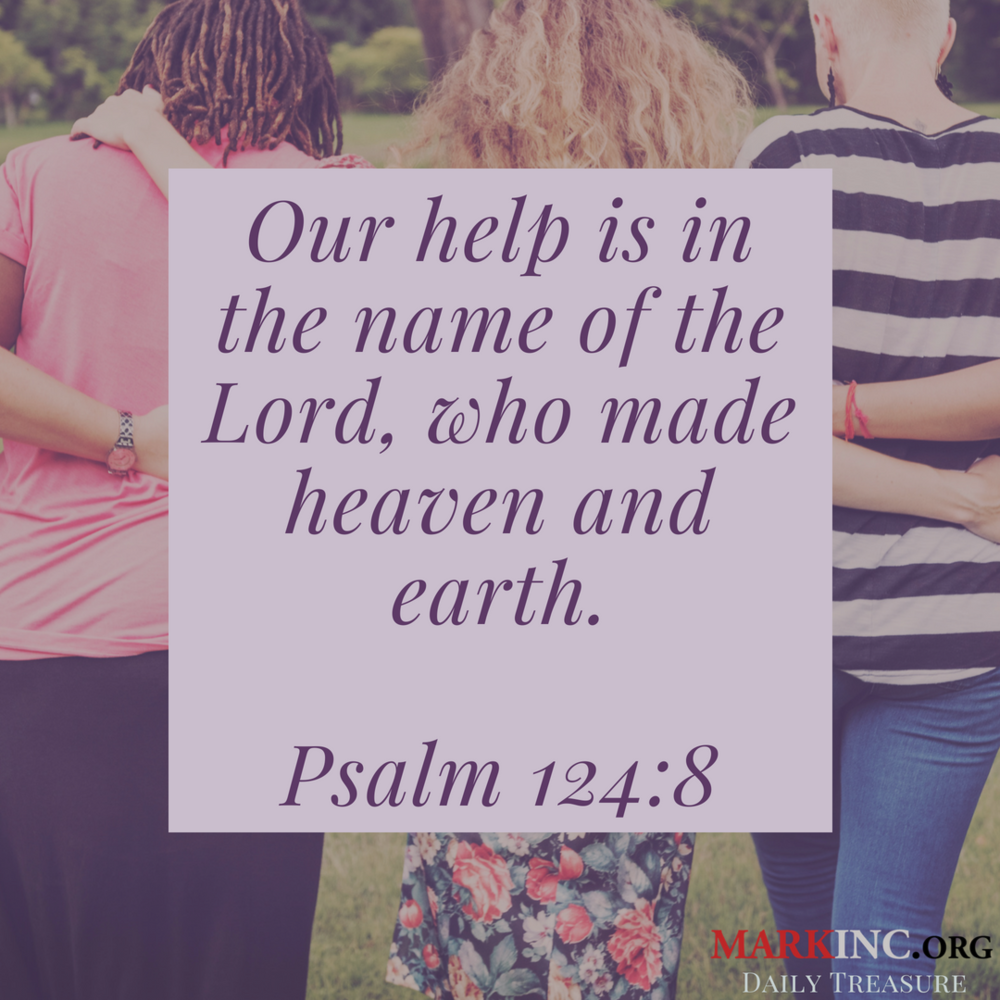
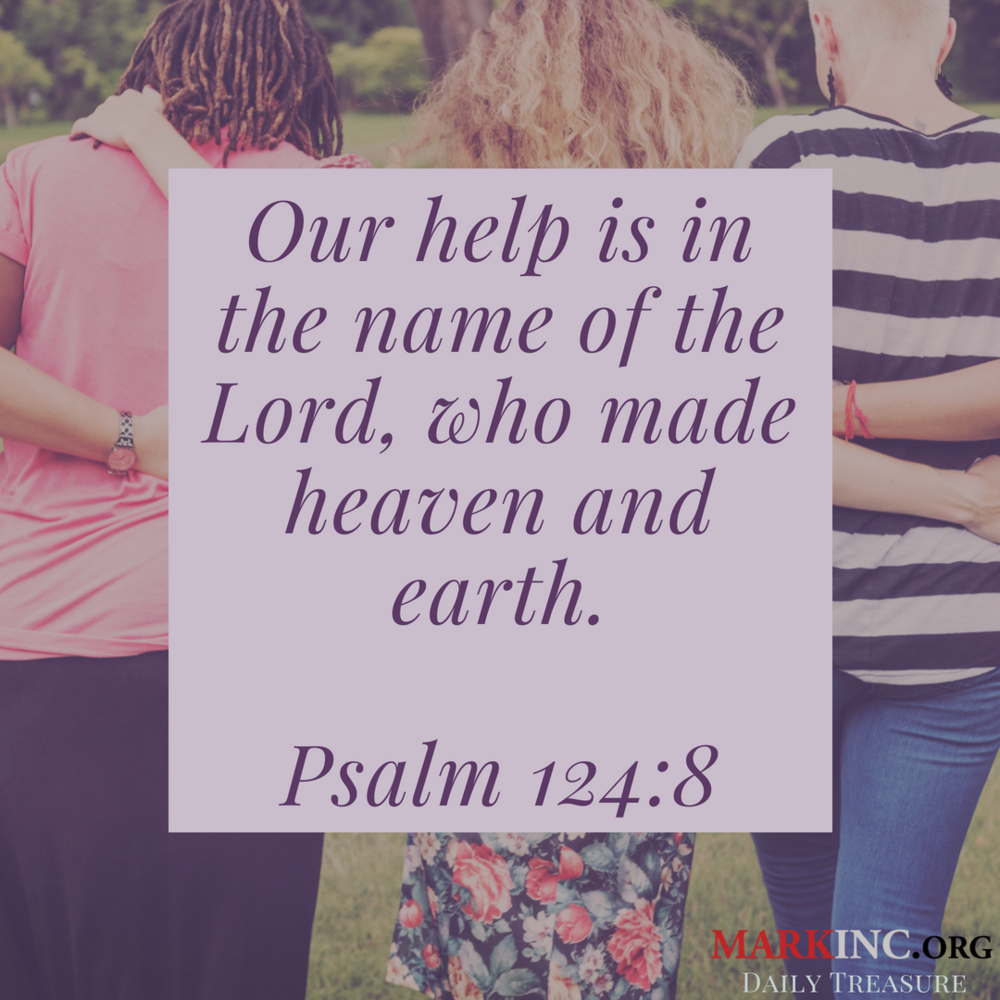
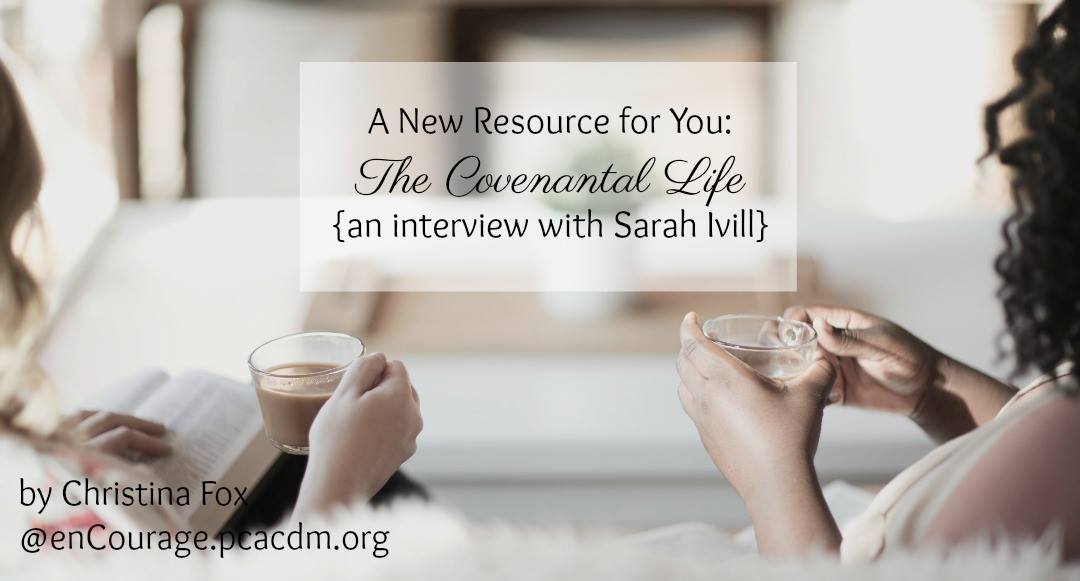


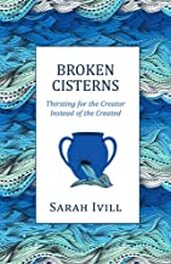

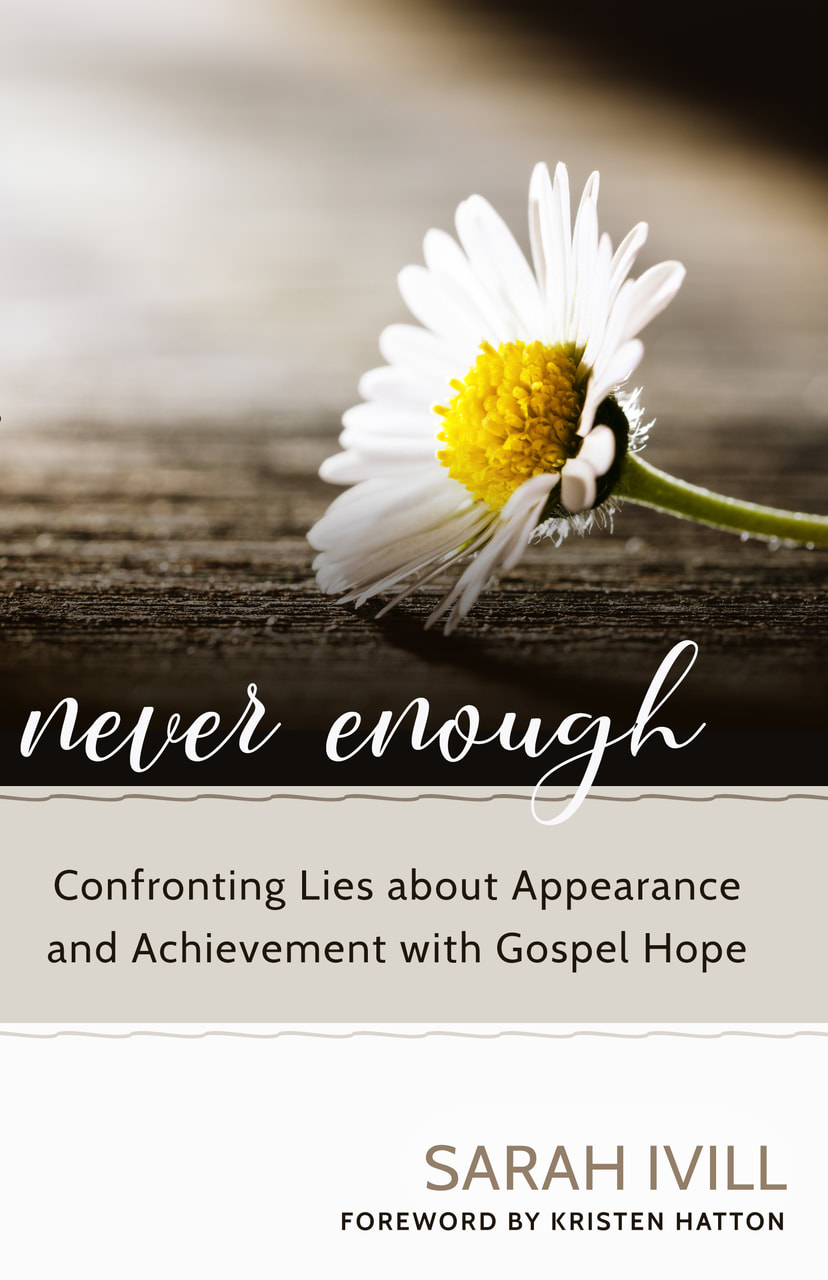






 RSS Feed
RSS Feed
